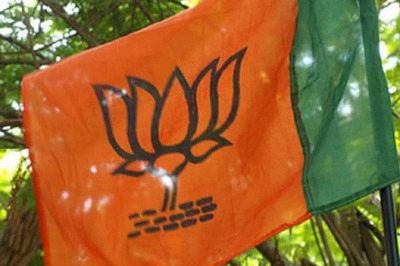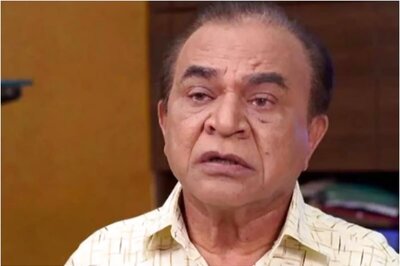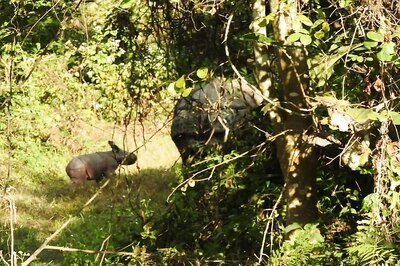
views
Remember the film Born on The Fourth of July that got its director Oliver Stone an Oscar and lead Tom Cruise a nomination? The film saw Tom Cruise play a US Marine sergeant, who after serving two tours in Vietnam, returns paralysed and wounded, both physically — and mentally.
During World War I, it was called 'shell shock' and it came to be known as 'combat fatigue' after World War II, but Posttraumatic Stress Disorder (PTSD) is not something restricted to combat veterans. A psychiatric disorder that can occur in people who have experienced or bore witness to a traumatic event such as a natural disaster, a serious accident or other violent personal assault, it can occur in people of any ethnicity, nationality or culture and in any age.
Developing PTSD can be a natural response to any number of distressing experience and symptoms include anxiety, sleeplessness, moodiness and avoidance of places or situations which may trigger flashbacks.
PTSD can last for years, with its symptoms impacting the overall quality of a normal life. A lot of times people suffering from PTSD can attempt at negative coping to deal with its struggles — slowly sinking into a world of drugs and booze in their struggle to exist.
The main treatments for people with PTSD are counselling (psychotherapy) and medication. Antidepressants are the first-line medications for PTSD and have been known to benefit about half the people suffering from PTSD.
While Cognitive Behavioral Therapy (CBT) has been recognised as a safe and effective intervention to the disorder, there are a few other approaches, which might help in coping with PTSD as well.
Mindfulness meditation: Meditation and mindfulness-based relaxation techniques have proved beneficial for PTSD. These include mindfulness-based stress reduction (MBSR), which trains people to focus on their breath and learn to avoid getting carried away by stressful thoughts and mindfulness-based cognitive therapy (MBCT), which specifically targets depressive moods and thoughts.
Furthermore, mindfulness-based exposure therapy that includes exposure to stimuli in a controlled environment and meditation-relaxation along with the silent repeating of words and phrases can also calm a person down.
Physical activity: Physical activity often helps reduce stress levels and allows people to cope with their symptoms. In fact, researchers from Anglia Ruskin University in Cambridge in the United Kingdom found that surfing can be an effective coping strategy for war veterans diagnosed with PTSD.
Social support: Various studies have found that finding support from others can be a major factor in helping people overcome the negative effects of a traumatic event and PTSD. Having someone to talk to goes a long way in staving feelings of anxiety and depression.
Expressive Writing: According to a study conducted by researchers at Syracuse University, expressive writing in PTSD patients showed significant improvements in mood and post-traumatic growth. It greatly attenuated neuroendocrine (cortisol) responses to trauma-related memories.
Art therapy: The therapy makes use of creative mediums like drawing, painting, colouring, and sculpture. For PTSD patients trying to cope with the symptoms, art helps process traumatic events in a new way, providing an outlet when words fail. In fact, according to a research conducted by Wolfheze/Research Centre KenVak and Radboud University along with a host of other researchers, art therapy may offer an alternative and suitable treatment, because the nonverbal and the experiential character of art therapy appears to be an appropriate approach to the often wordless and visual nature of traumatic memories.




















Comments
0 comment